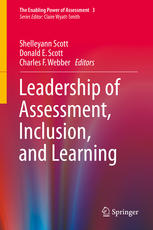

Most ebook files are in PDF format, so you can easily read them using various software such as Foxit Reader or directly on the Google Chrome browser.
Some ebook files are released by publishers in other formats such as .awz, .mobi, .epub, .fb2, etc. You may need to install specific software to read these formats on mobile/PC, such as Calibre.
Please read the tutorial at this link: https://ebookbell.com/faq
We offer FREE conversion to the popular formats you request; however, this may take some time. Therefore, right after payment, please email us, and we will try to provide the service as quickly as possible.
For some exceptional file formats or broken links (if any), please refrain from opening any disputes. Instead, email us first, and we will try to assist within a maximum of 6 hours.
EbookBell Team

4.0
36 reviewsThis book provides pragmatic strategies and models for student assessment and ameliorates the heightened sense of confusion that too many educators and leaders experience around the complexities associated with assessment. In particular, it offers guidance to school and district personnel charged with fair and appropriate assessment of students who represent a wide variety of abilities and cultures. Chapters focus on issues that directly impact the educational lives of teachers, students, parents, and caregivers. Importantly, the confluence of assessment practices and community expectations also are highlighted.
Assessment is highly politicised in contemporary society and this book will both confirm and challenge readers’ beliefs and practices. Indeed, discerning readers will understand that the chapters offer them a bridge from many established assessment paradigms to pragmatic, ethical solutions that align with current expectations for schools and districts.
In Part One, readers engage with concepts and skills needed by school learning leaders to guide optimal assessment practices. Part Two delves into student assessment within and across disciplines. Part Three provides pragmatic approaches that address assessment in the context of inclusive intercultural education, pluralism, and globalisation.